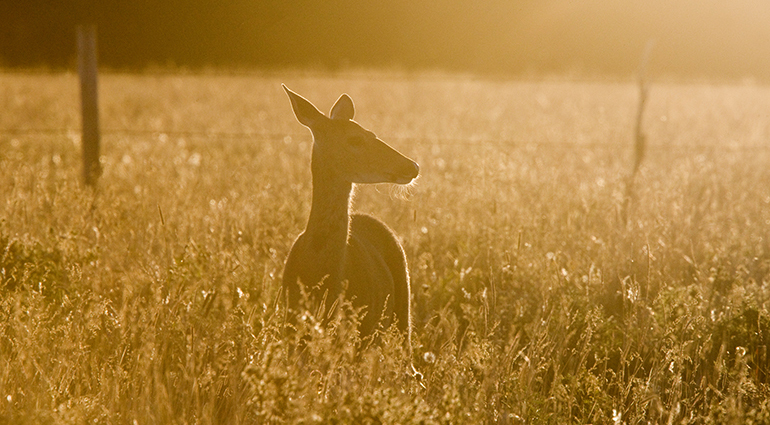God Provides
Those who work their land will have abundant food. Proverbs 12:11
Outside my office window, the squirrels are in a race against winter to bury their acorns in a safe, accessible place. Their commotion amuses me. An entire herd of deer can go through our back yard and not make a sound, but one squirrel sounds like an invasion.
The two creatures are different in another way as well. Deer do not prepare for winter. When the snow comes they eat whatever they can find along the way (including ornamental shrubs in our yard). But squirrels would starve if they followed that example. They would be unable to find suitable food.
The deer and the squirrel represent ways that God cares for us. He enables us to work and save for the future, and He meets our need when resources are scarce. As the wisdom literature teaches, God gives us seasons of plenty so that we can prepare for seasons of need (Prov. 12:11). And as Psalm 23 says, the Lord leads us through perilous places to pleasant pastures.
Another way that God provides is by instructing those with plenty to share with those in need (Deut. 24:19). So when it comes to provision, the message of the Bible is this: Work while we can, save what we can, share what we can, and trust God to meet our needs.
Thank You, Lord, for the promise that You will meet our needs. Help us not to fear or doubt. We’re grateful that You’re watching over us and that our cries for help reach Your ear.
Our needs will never exhaust God’s supply.
INSIGHT
How does God provide for us? What if the source of our help comes from someone of another religion or from someone who claims no belief in God? Is their kindness still from God? Think about the children of Israel. Who helped them in their escape from Egypt? Yes, it was God and Moses. But Moses tells us that the Spirit of God prompted the Egyptian neighbors to fill the arms of the Jewish slaves with gold, silver, and clothing for their journey (Ex. 12:35–36).
Looking back on that day of great escape, in Deuteronomy 24 God reminds His people of two things. To help them identify with those in need, He wanted Israel to remember that their ancestors were once impoverished slaves. The second reminder grew out of the first. The Lord reminded His people that just as they had been helped in their escape from bondage, now it was their turn. As God had met their needs through the hands of others, so it was their turn to help others in a way that gives hands and faces to the heart of our provider God.





